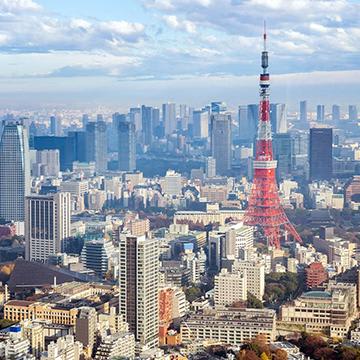True One-Stop Service For Business In Japan

- 10+ Bilingual Experts
- 800+ Companies Thrived
- Seamless / High-Quality One-Stop Service
This page outlines the prerequisites for expatriates to qualify for an “Intra-Company Transferee” visa in Japan:
At Least One Year of Employment at an Overseas Corporation (the company in which the applicant enrolled)
The expatriate must have been continuously employed by the overseas corporation (the company in which he/she enrolled) for a minimum of one year.
For example, if an expatriate has been working for the parent company, let’s say overseas corporation A, for at least one year, they may then be transferred to a subsidiary company in Japan.
If the expatriate was employed at Company A, the parent company of the Japanese corporation, before the Japan transfer, even if they were subsequently transferred from Company A to Company B in a different country, their enrollment is considered with Company A.
This requirement discourages the immediate transfer of newly hired employees to Japan and prevents transfers primarily aimed at securing labor.
Alignment of Business Activities:
Expatriates are limited to work categorized under “Engineer/Specialist in humanities/International services,” a significant Japan work-related visa classification.
This typically encompasses activities requiring expertise based on academic background or involving a level of thinking or sensitivity unique to the expatriate’s culture that cannot be found readily in Japan. Examples of eligible roles include administrative management tasks, programming development, marketing, and international business transactions, rather than simple or manual labor.
It is also essential that the expatriate’s role at the overseas corporation should be similar to the above said roles. In most cases, someone solely engaged in factory line work at the overseas corporation is not suitable for this visa.
Importantly, there is no strict requirement that the work at the overseas corporation directly corresponds to the work at the Japanese corporation. Misunderstanding this point can significantly limit the pool of candidates for expatriate positions.
Remuneration Comparable to Japanese Nationals:
Expatriates must receive remuneration equal to or greater than what Japanese nationals engaged in similar work typically earn.
Remuneration is understood as compensation given for services rendered, excluding items considered reimbursements for actual expenses (e.g., commuting allowance, support allowance, housing allowance), provided they are not taxed.
The determination of whether remuneration is equal to or greater than that of a Japanese national is based on the specific wage system of the employer or referencing wage levels for similar positions in other companies. There is no fixed standard; it depends on prevailing industry standards and company-specific criteria.
Author
Related services
Contact us
Complete this form and an RSM Shiodome Partners representative will be in touch.





